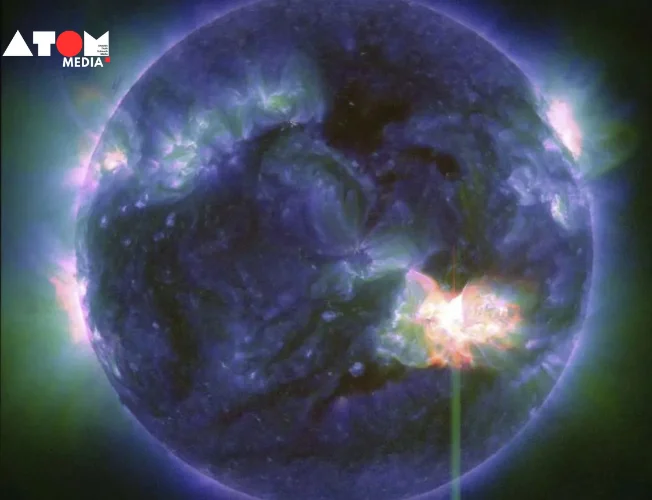A monumental solar storm, the most potent in over two decades, has made landfall on Earth, heralding spectacular cosmic displays across the globe. However, amidst the awe-inspiring visuals lies the looming threat of potential disruptions to vital communication systems and power grids.
Impacts on Communication and Power Grids
The solar storm, characterized by multiple coronal mass ejections (CMEs), has been classified as an “extreme” geomagnetic storm by NOAA’s Space Weather Prediction Center. This classification raises concerns about its potential to disrupt satellites, aviation communication, and terrestrial power infrastructure.
Global Phenomenon
Social media platforms have been inundated with mesmerizing images of auroras illuminating the skies, captured by observers from Tasmania to Britain. The celestial spectacle has captivated onlookers, underscoring the magnitude of the solar event.
Response and Precautionary Measures
Authorities have issued alerts to satellite operators, airlines, and power grid operators, urging them to implement precautionary measures to mitigate potential disruptions. Elon Musk, founder of Starlink satellite internet operator, has highlighted the storm’s significance and assured the resilience of Starlink satellites against its effects.
Scientific Insights
Unlike solar flares, which travel swiftly, CMEs traverse space at a more moderate pace, allowing for advanced warning and preparatory measures. The origin of the CMEs lies in a colossal sunspot cluster, indicative of the Sun’s heightened activity as it approaches the zenith of its 11-year cycle.
Public Engagement and Awareness
Experts encourage the public to observe the night sky, particularly in regions prone to auroras, and capture the celestial display. Moreover, innovative smartphone technology enables individuals to document these phenomena with remarkable clarity.
Mitigation Strategies
The potential ramifications of geomagnetic storms extend beyond technological systems to biological compasses, affecting species such as pigeons. As a precautionary measure, individuals are advised to have contingency plans in place for power outages, including essential supplies such as flashlights and batteries.
Historical Precedents
The solar storm invokes comparisons to historic events such as the Carrington Event of 1859, underscoring the far-reaching consequences of solar activity on terrestrial systems. The Carrington Event, named after astronomer Richard Carrington, caused widespread disruptions to telegraph communication networks.
Read more: Marketing News, Advertising News, PR and Finance News, Digital News





